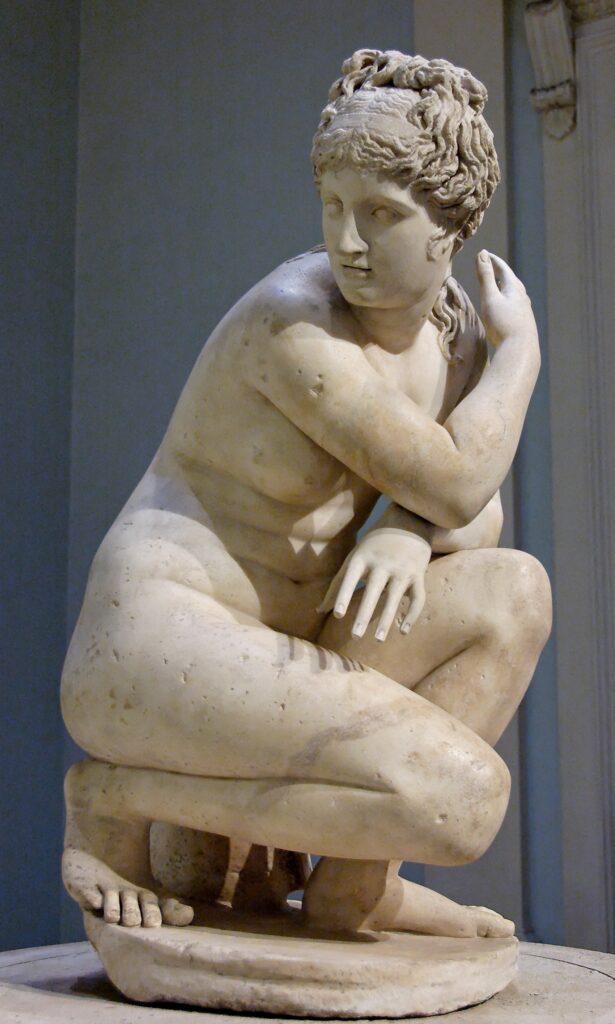APHRODITE, Greek goddess of love, beauty and fertility. The meaning of the name is uncertain, though the Greeks, from Hesiod on, derived it from αφρός, 'foam', and told of the birth of Aphrodite from the sea. She was worshipped throughout almost all the Greek world; the sanctuaries at Paphos and Amathus in Cyprus, at Cythera, and at Corinth were especially renowned. To Homer she is 'the Cyprian', and it was probably at Cyprus, in the Mycenaean age, that Aphrodite first entered Greece, though the Hellenic goddess doubtless owes something to earlier Aegean divinities, such as Ariadne, whose cults she absorbed. . .
Primarily, she is a goddess of generation and fertility, and in poetry often seems little more than a personification of the sexual instinct and the power of love. Occasionally she presides over marriage . . . but marriage was a domain largely pre-empted by Hera. Prostitutes, however, considered Aphrodite their patron, and there was sacred prostitution in her cult at Corinth, but in general the public cult, at least, was staid and even austere.
Aphrodite was widely worshipped as a goddess of the sea and seafaring. The armed Aphrodite or goddess of war was worshipped in Sparta, Cyprus, Cythera and elsewhere. . .
Two very common titles are Ούρανία and Πάνδημος, but the philosophical interpretation of these as representing intellectual and common love is unjustified. The title Urania, in fact, seems frequently a mark of the oriental goddess, and was a cult name at Cyprus, Cythera and Corinth. It was also applied to various foreign goddesses. Pandemus, on the other hand, the 'goddess of the whole people', represents the highest political idea to which Aphrodite attained.
Francis Redding Walton, Aphrodite entry in The Oxford Classical Dictionary (ed. N. G. L. Hammond and H. H. Scullard), 2nd ed., Oxford 1970
Descendant of:
MYTHOLOGY AND THE CLASSICAL WORLD
Texts with this theme:


